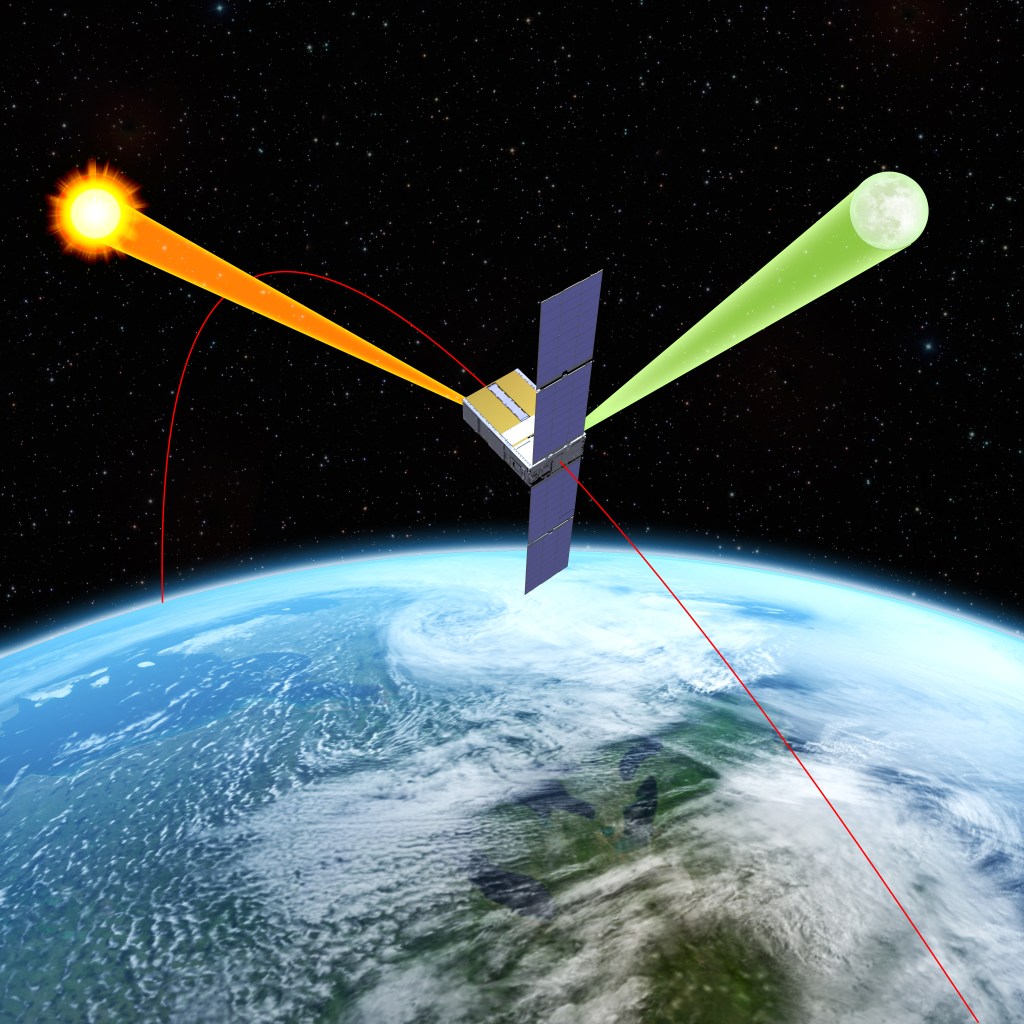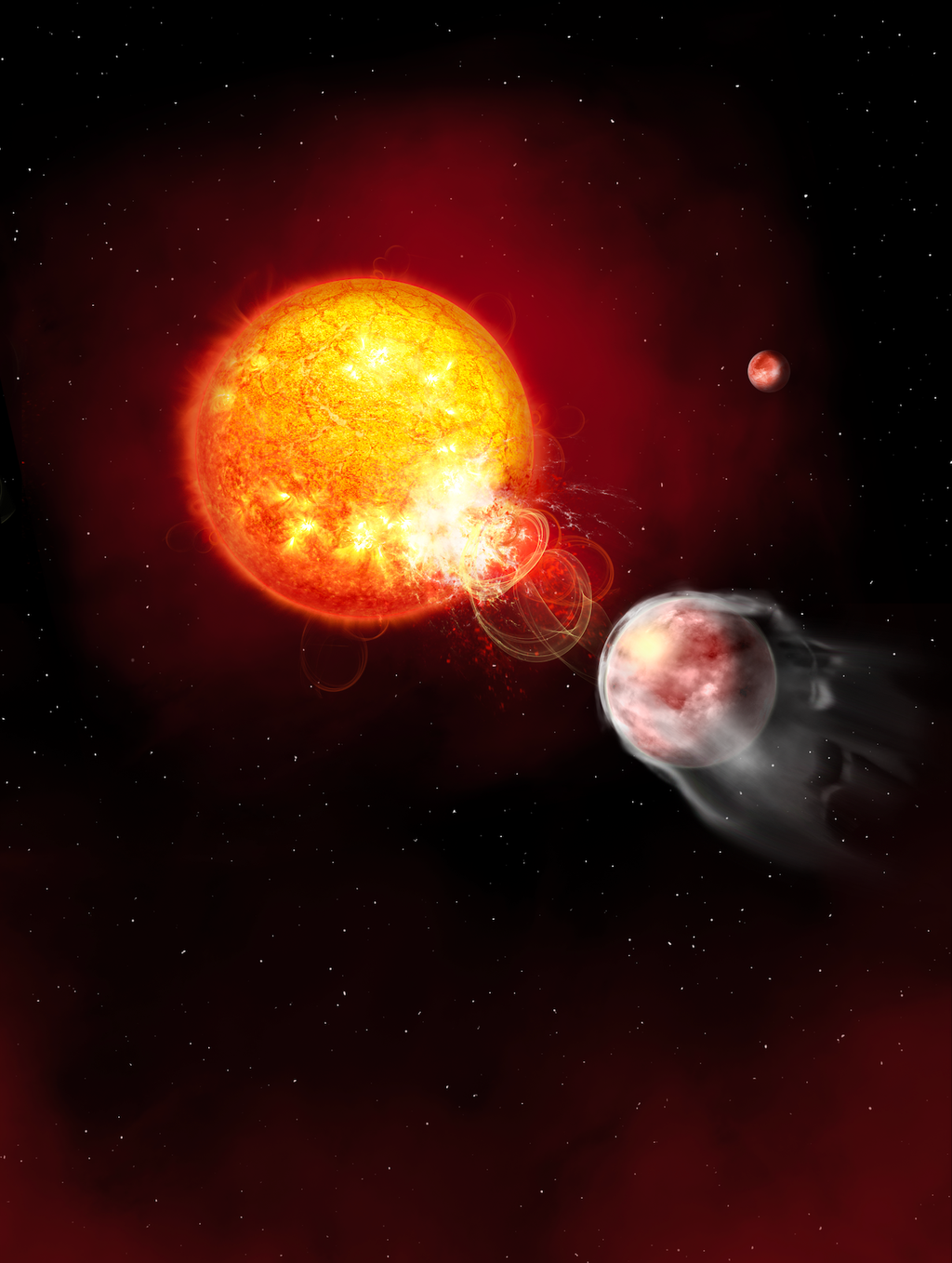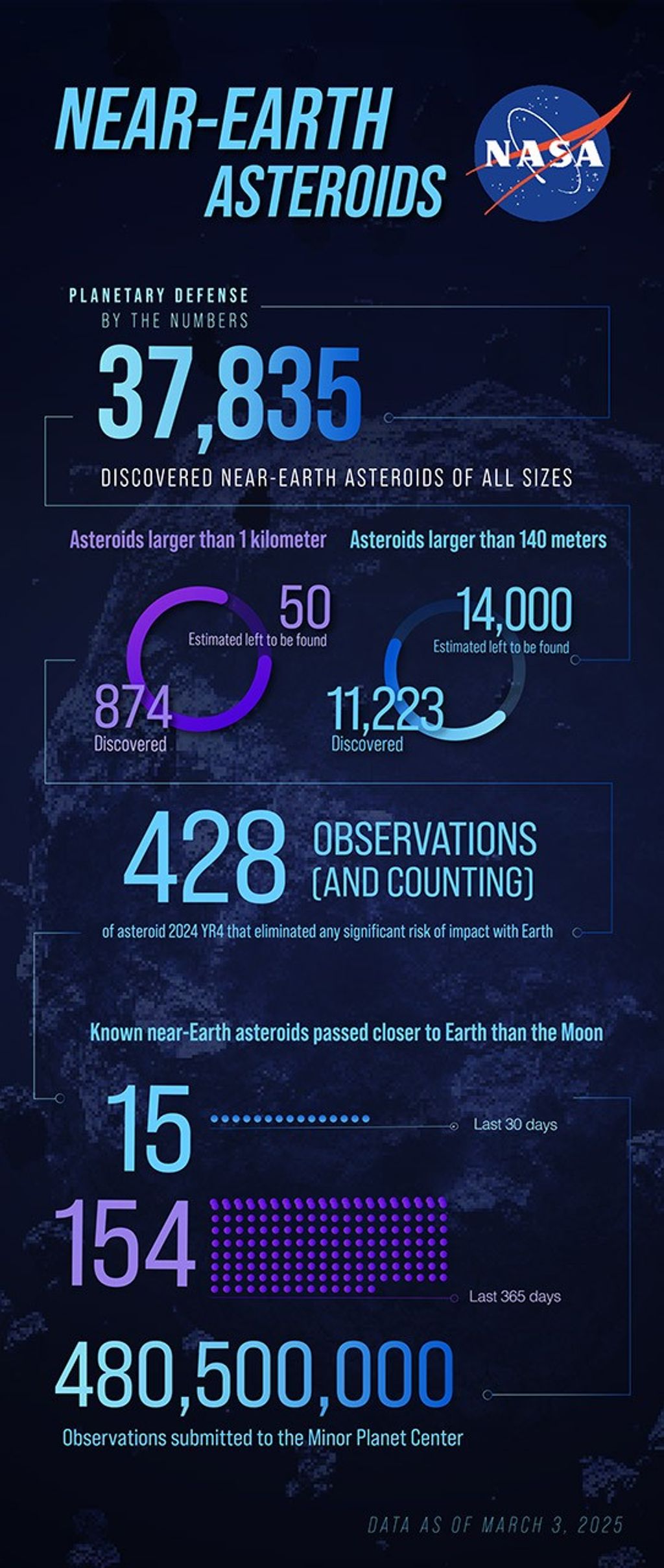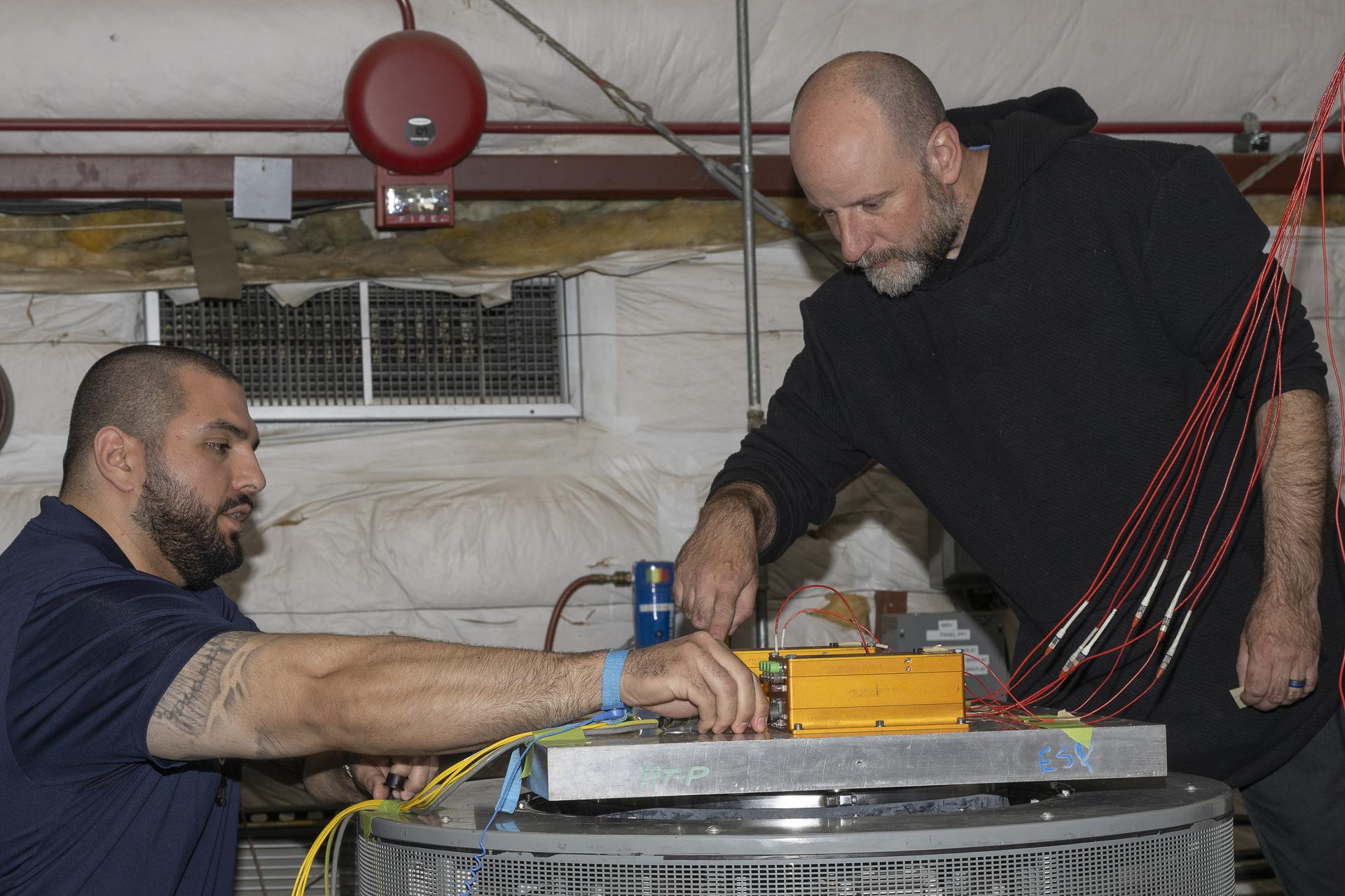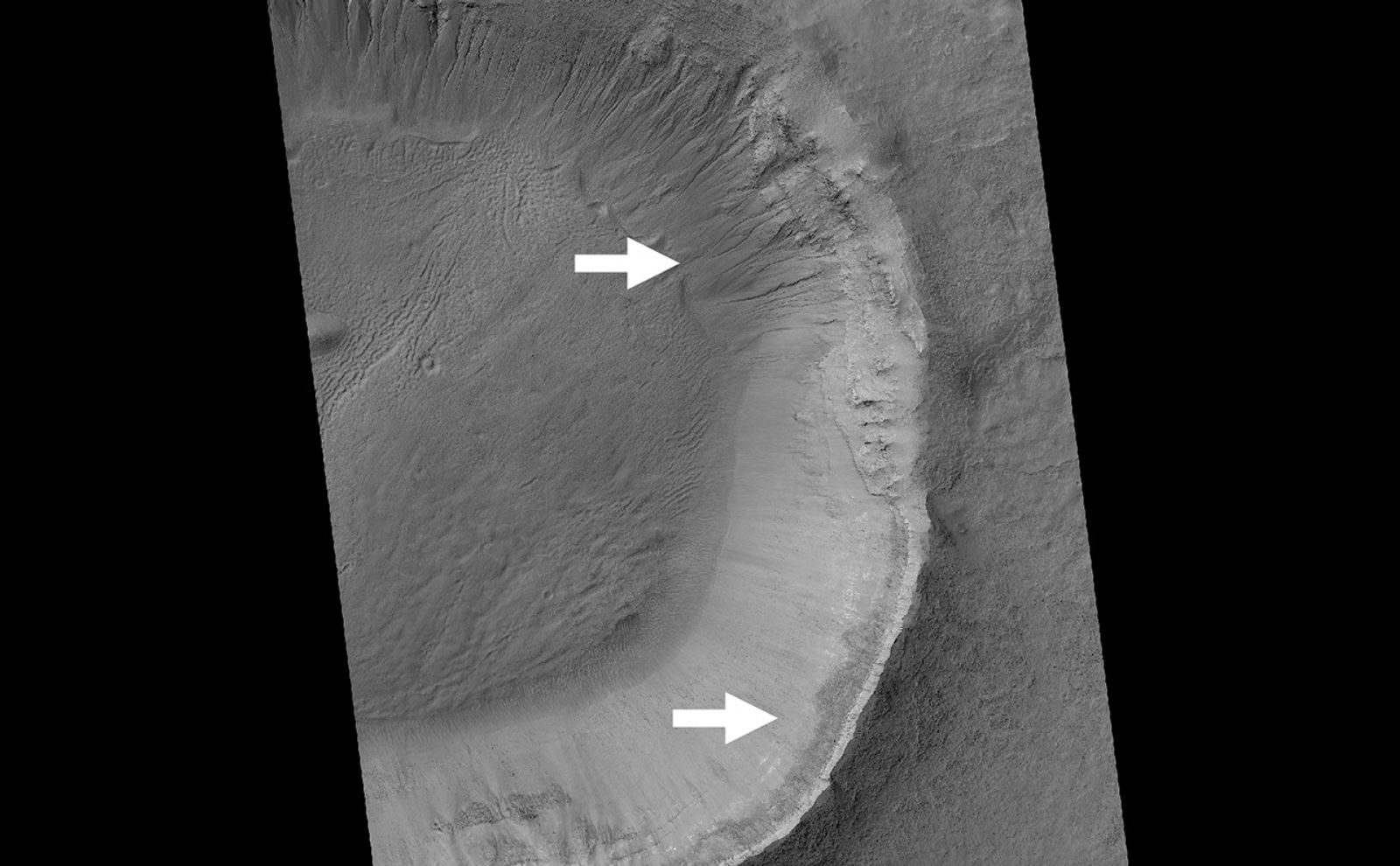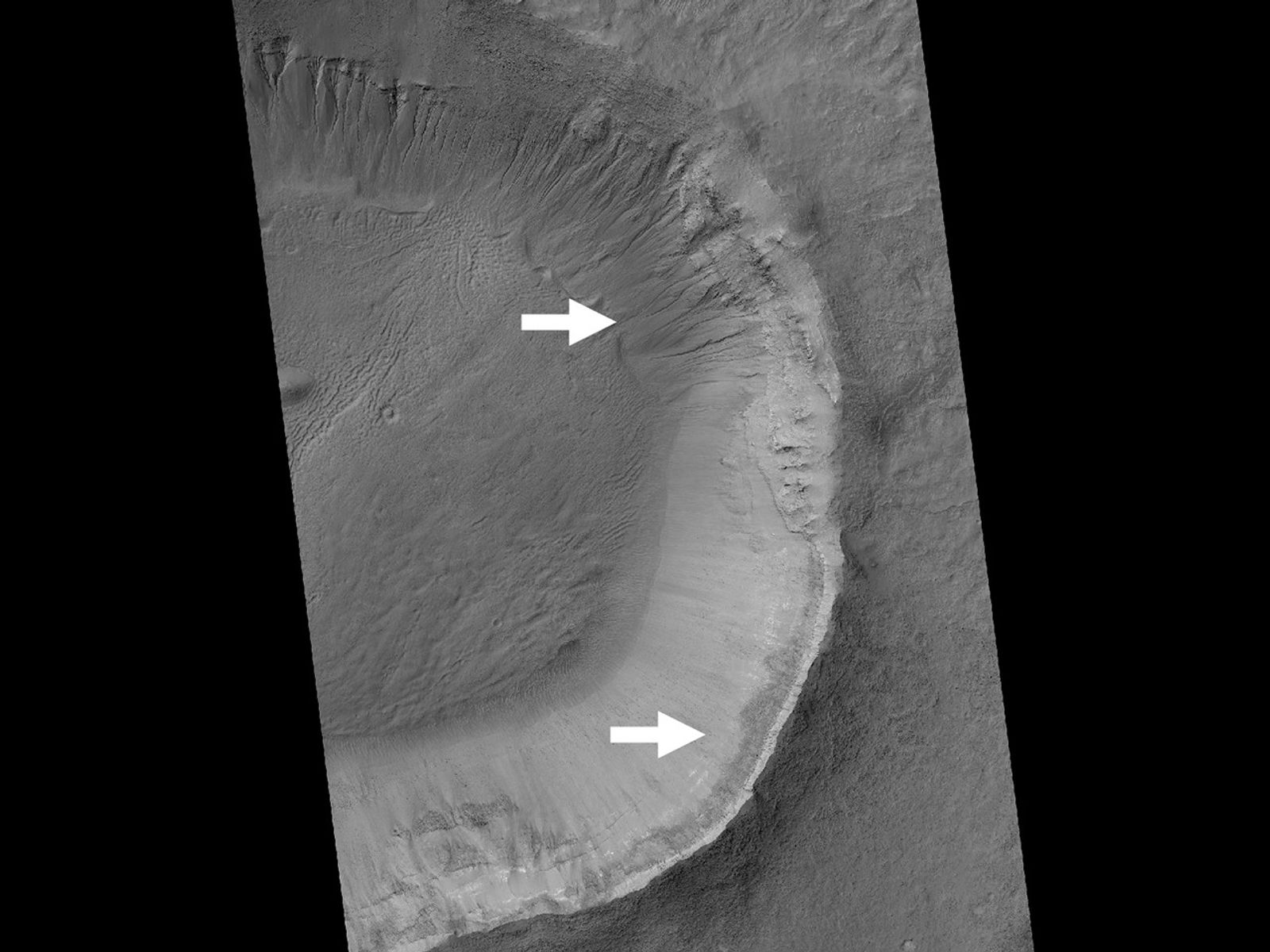Gullies and Newly Identified Flow Features in Same Mars Crater (Arrows)
| Credit | NASA/JPL-Caltech/University of Arizona |
|---|---|
| Language |
|
This image contrasts gullies and recurring warm-season slope flows appearing in the same crater, in the middle southern latitudes of Mars. It was taken Nov. 27, 2007, by the High Resolution Imaging Science Experiment (HiRISE) camera on NASA's Mars Reconnaissance Orbiter.
Gullies are on the pole-facing slope, which is on the northern side of this crater (upper arrow). Recurrent warm-season flows are on the equator-facing wall (lower arrow).
Gullies are typically much larger than the warm-season flows. As seen in this crater, gullies have a typical range of features including alcoves, channels and aprons.
The flow features are narrow (one-half to five yards or meters wide), relatively dark markings on steep (25 to 40 degree) slopes at a few other southern hemisphere locations. Repeat imaging by HiRISE shows the features appear and incrementally grow during warm seasons and fade in cold seasons. Sequences of observations recording the seasonal changes in these flows might be evidence of salty liquid water active on Mars today.
Other imagery related to these new findings from the Mars Reconnaissance Orbiter is at http://www.nasa.gov/mission_pages/MRO/multimedia/gallery/gallery-index.html.
This image is one product from HiRISE observation PSP_006261_1410. Other image products from this observation are available at http://hirise.lpl.arizona.edu/PSP_006261_1410 .
The University of Arizona, Tucson, operates the HiRISE camera, which was built by Ball Aerospace & Technologies Corp., Boulder, Colo. NASA's Jet Propulsion Laboratory, a division of the California Institute of Technology, Pasadena, manages the Mars Reconnaissance Orbiter for the NASA Science Mission Directorate, Washington. Lockheed Martin Space Systems, Denver, is the spacecraft development and integration contractor for the project and built the spacecraft.









